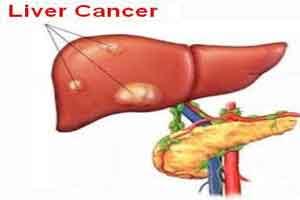- Home
- Editorial
- News
- Practice Guidelines
- Anesthesiology Guidelines
- Cancer Guidelines
- Cardiac Sciences Guidelines
- Critical Care Guidelines
- Dentistry Guidelines
- Dermatology Guidelines
- Diabetes and Endo Guidelines
- Diagnostics Guidelines
- ENT Guidelines
- Featured Practice Guidelines
- Gastroenterology Guidelines
- Geriatrics Guidelines
- Medicine Guidelines
- Nephrology Guidelines
- Neurosciences Guidelines
- Obs and Gynae Guidelines
- Ophthalmology Guidelines
- Orthopaedics Guidelines
- Paediatrics Guidelines
- Psychiatry Guidelines
- Pulmonology Guidelines
- Radiology Guidelines
- Surgery Guidelines
- Urology Guidelines
Targeted Treatment For Liver Cancer Under Way

Researchers at the University of Eastern Finland and Eberhard Karls Universität Tübingen have discovered a new molecular mechanism that can be used to inhibit the growth of hepatocellular carcinoma, which is the most common liver cancer. The findings were published in Nature Medicine.
The study found that mouse and human liver cancer in which the function of the protein p53 is disturbed or inhibited is dependent on the interaction between the Aurora kinase A (AURKA) and MYC proteins. Interfering the AURKA protein with a specific drug molecule inhibits this interaction and causes cancer cells to die.
With the help of computer-aided molecular modelling, the Pharmaceutical & Medicinal Chemistry research group at the University of Eastern Finland analysed interactions between the AURKA and MYC proteins. Molecular modelling also helped understand why only certain drug molecules inhibit the AURKA-MYC interaction, while others have no impact on it at all. Furthermore, molecular modelling made it possible to predict whether a certain drug molecule can inhibit the AURKA-MYC interaction or not.
Currently, no effective treatments for advanced liver cancer exist. By specifically targeting the AURKA protein, it may be possible to efficiently prevent the growth of p53 altered liver cancer. The findings of the study can be made use of in the development of treatments for patients with this cancer type.
Following the discovery of this new potential treatment target in liver cancer, the University of Eastern Finland and Eberhard Karls University ät Tübingen have launched a project focusing on the development of a new cancer drug. Several universities and research institutes in Germany and France have also participated in this research.

Disclaimer: This site is primarily intended for healthcare professionals. Any content/information on this website does not replace the advice of medical and/or health professionals and should not be construed as medical/diagnostic advice/endorsement or prescription. Use of this site is subject to our terms of use, privacy policy, advertisement policy. © 2020 Minerva Medical Treatment Pvt Ltd